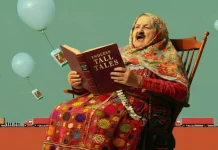By EUvsDisinfo
From 6-9 June, the next elections to the European Parliament will take place across EU Member States in the largest European democratic exercise for hundreds of millions of people. These elections will give a mandate to the European Parliament for the next five years.
In this series of articles, we show examples of key tactics, techniques, and procedures employed by pro-Kremlin manipulators and disinformers targeting the European Parliament elections. We examine attempts to smear leaders; sow distrust, doubt, and division; flood social media with falsehoods trying to turn the public against Ukraine; and project Russia’s own shortcomings onto the EU to distract from the reality of Putin’s Russia. We will also follow how the election results are portrayed by the pro-Kremlin disinformation ecosystem.
In the first article, we analysed the technique of smearing prominent political leaders by inventing scandals, twisting or taking things out of context, or posing as ‘doppelgangers’ to clone or hijack their online identities to lure target audiences. A second technique is closely associated with the first: sowing discontent, doubt, and division.
The second article looked at attempts to foment discontent inside EU Member States, exploit existing political issues, and erode the credibility of the EU system. We have documented increasing attempts by Russian state-sponsored and pro-Kremlin outlets targeting the EU to influence public discussions.
The third article examined techniques to flood information spaces with falsehoods to turn the public against Ukraine. Anti-Ukraine narratives are still, by far, the dominant topic for the Kremlin manipulators. On a regular day, half of the content across key Russian state-controlled and pro-Kremlin platforms are directed against Ukraine in one way or another.
Technique no. 4: drag everyone down into the mud
There is a special variant of ‘whataboutism’, the trick used to deflect criticism away from the main topic with a counterattack along the lines of ‘I may not be perfect, but neither are you’. If you realise that your own position is precarious, why wait for the opponent’s first blow of criticism? Go straight for the attack.
It may not be perfect in Russia…
It is safe to assume that there is a cynical reading among Russians of Putin’s re-coronation on 7 May with all the pomp and circumstance and claims of an 87.28 per cent victory. Citizens understand that the election was carefully controlled and that there are no real democratic alternatives. Why else go to such extremes as de-listing otherwise legitimate candidates, tightening the heavy censorship of public debate, and flashing blunt police force and repression? And why does Putin abstain from political debates? Given the political apathy of large swaths of Russian society, the 87 per cent ‘victory’ indicates new levels of electoral manipulation, as documented by the election observation NGO Golos. The Russian word vranyo (враньё) sums up the concept: everyone knows you’re lying, but no one really cares.
…but in Europe, it’s all wrong
It is important for the Kremlin to portray the EU societies as no better or even worse and claim that they are as corrupt, as selfish, and as cynical. The narrative of an imminent European, and wider Western, collapse is a Kremlin classic: ‘We may be in the mud, but so are they’. This feeds domestic political acceptance and apathy in Russia which underpins Putin’s grip on power.
Same technique as during COVID-19
There are many parallels now in terms of whataboutism against the EU with what we documented during the COVID-19 pandemic in 2020-2021. The pandemic was a public health disaster for Russian society with hundreds of thousands of persons affected and an excess mortality of around 380,000 people or close to 0,26 per cent of the population – one of the highest in the world per capita. There was a need for Moscow to manage public sentiment in Russia and they employed two techniques. One was embellishing, if not downright manipulating, the national Russian COVID statistics. Another was attacking the EU, in particular vaccines made in the EU, and pushing theories of Western conspiracies supposedly directed against Russia (see our Special Reports on COVID-19 related disinformation).
New accusations against the EU
The equivalent in today’s situation is to posit parallels between elections in Russia and across the EU and to suggest that the latter are marred by the very problems that affect those in Russia. Recent accusations claim that the EU is infected by fascism and dysfunctional, or doomed to collapse after the elections. Even if not closely linked to elections, the EU is supposedly also allergic to criticism and has introduced censorship – exactly the sort of censorship in evidence in Russia.
Russian state outlets, especially those in the RT Russia Today network, have promoted the line that far-right parties such as the AfD are set to poll well but will be prevented from this through a deliberate ‘public hate campaign’, ostensibly run by a sort of deep state conspiracy. This taps into the longstanding ‘elite vs. the people’ narrative.
The elections are framed as being corrupt and not representative of the ‘true will’ of the people. The attack on Slovak PM Robert Fico has also been used to claim that the globalist EU elite may be behind the attempt on his life because of Fico’s critical position on the Ukraine policy.
The procedure to appoint the next Commission President is supposedly fraudulent and undemocratic while the EU system is stealing competences from the Member States.
The Polish mirror
As a way to sow apathy and reduce turnout, voters in Poland were told that all their elections held since the defeat of Communism in 1989 had been manipulated. The claim suggests that everything was better under Communism, i.e., when the USSR controlled Poland. This mirrors the revival of selected symbols of the Soviet Union which Putin’s Russia is promoting today: the role of the strong state, an unchallenged ruler Joseph Stalin, etc. In relation to Poland, it is claimed that the country owes its current territory, industry and independence to Stalin but in spite of this ‘graceful gift’ from the Soviet Union (and hence Russia), modern Poland is ungrateful, revisionist and imperialist, seeking to conquer Belarus and parts of Ukraine. ‘Conquer and control neighbours’ – does this not just ring another Russian bell?
You blame us, we blame you
Russia is criticised for its increasingly authoritarian regime. As a kind of a response to this, no day passes without an even wilder Nazi accusation against the EU: the EU and Commission President Ursula von der Leyen are running an online Gestapo. Another claim is that Germany is seeking revenge by again fuelling the growth of Nazism in Europe. Had these vulgar and vile allegations not been so prolific and central to the Kremlin’s propaganda, one could just laugh. But that would be missing the corrosive long-term effect of repetitive disinformation.
All these efforts aim to sour the atmosphere, discourage voter turnout, and manipulate or disturb the agenda in the run-up to the European Parliament elections. They also seem to prepare the ground for narratives rejecting the legitimacy of the election results and the process following the elections.
Stay tuned for articles after 9 June which will examine reactions to the European Parliament elections by Russian state-controlled and pro-Kremlin ecosystems.
Warming up to the elections on 6-9 June, we want to draw your attention to this blog post by the EU High Representative Josep Borrell on fighting foreign information manipulation and interference and protecting our democracy.
We encourage all voters to go and vote and strengthen our European Union.
If you don’t decide yourself, others will do it for you.
By EUvsDisinfo





